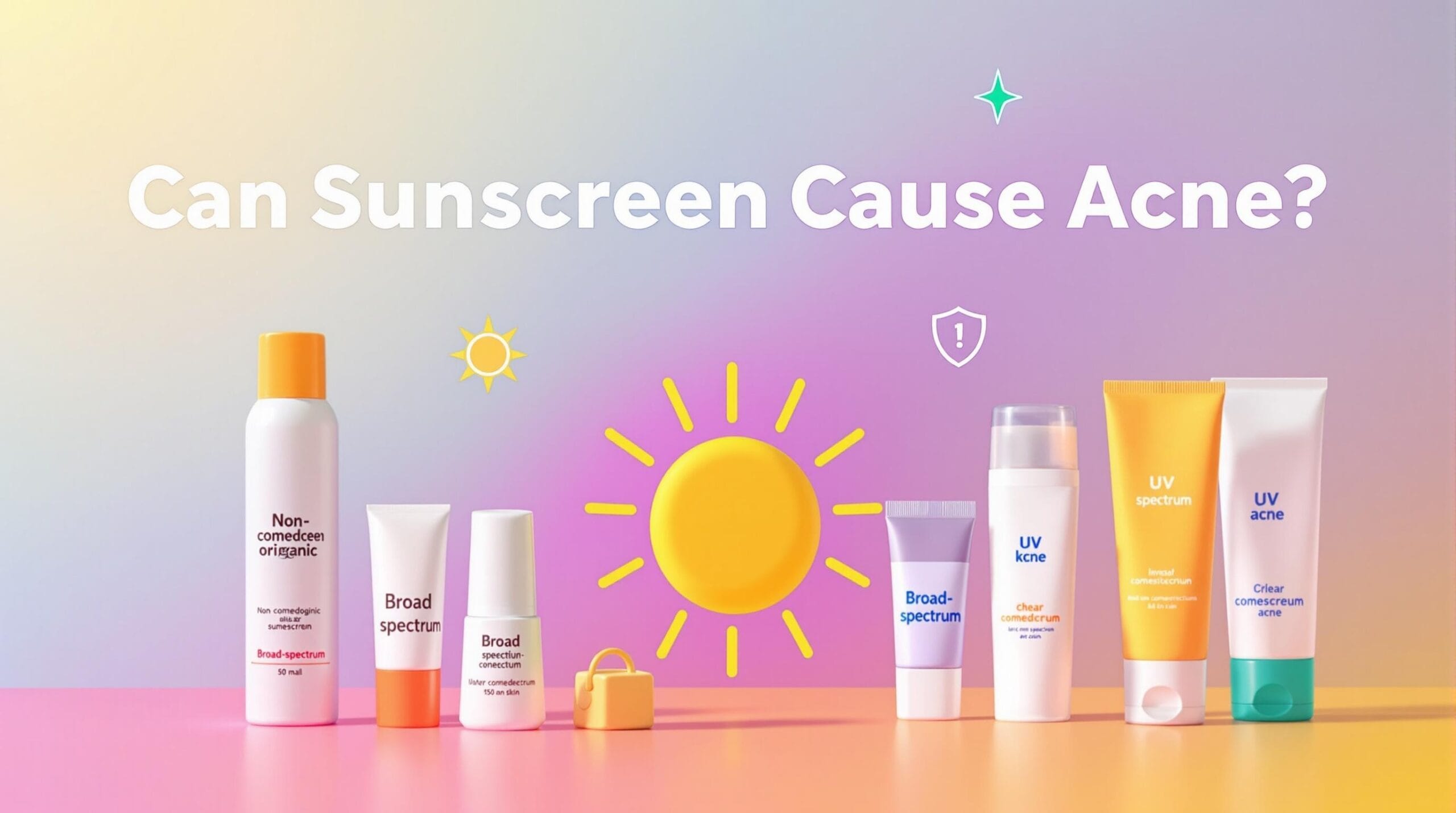
People often worry that using sunscreen can lead to acne breakouts. It’s a common concern, especially for those with acne-prone skin. To address this, it’s important to understand the relationship between sunscreen, skin health, and acne.
Sunscreen plays a vital role in protecting skin against harmful UV rays. However, many individuals hesitate to use it due to concerns about worsening acne. This article explores this connection, shedding light on common misconceptions and explaining how to choose the right sunscreen.
Sunscreen Myths: Debunking Acne Misconceptions
Myth #1: All Sunscreens Clog Pores!
A common belief is that all sunscreens block pores and cause acne. This is misleading. Various formulations interact with skin in distinct ways. Non-comedogenic sunscreens are specially formulated to avoid blocking pores. Selecting the appropriate product can significantly reduce the risk of breakouts.
Myth #2: You Don’t Need Sunscreen if You’re Oily
Some individuals think oily skin doesn’t require sunscreen. This is incorrect. Every skin type, including oily, needs robust protection from UV rays. Sunscreen is vital for all skin types to avert sun damage and long-term skin complications.
Myth #3: Sunscreen Makes My Acne Worse
Many believe that sunscreen exacerbates acne. While some may experience irritation, numerous safe options do not contribute to acne. The choice of active ingredients and how sunscreen is applied greatly influences the skin’s response.
Exploring Ingredients: Non-Comedogenic vs. Comedogenic
What Does Non-Comedogenic Mean?
Non-comedogenic means a product is formulated not to block pores. This term is crucial for those choosing a sunscreen for acne-prone skin. Products labeled as non-comedogenic are less likely to cause acne.
Key Ingredients that Cause Breakouts
Common ingredients like fragrances and certain oils can irritate the skin, leading to breakouts. Checking labels for these ingredients is important. Choosing sunscreens with safe, simple components helps minimize acne risks.
How to Choose the Right Sunscreen to Prevent Acne!
Look for Broad-Spectrum Protection
Broad-spectrum sunscreens protect against both UVB and UVA rays. This protection is significant for preventing skin damage while ensuring skin health is maintained.
Go for Lightweight Formulas
Lightweight, gel-based formulas are often better for acne-prone skin compared to thicker creams. They absorb quicker without feeling greasy, reducing the risk of clogging pores.
Test Before You Commit: Patch Testing
Testing new products on a small skin area can prevent breakout surprises. Patch testing helps ensure the product suits your skin type before full application.
Practical Tips to Minimize Sunscreen-Induced Breakouts
Always Cleanse After Sun Exposure
Regular cleansing after sun exposure removes sunscreen and impurities. A gentle cleanser helps maintain clear skin by eliminating residues that could irritate.
Apply Sunscreen Strategically
Applying sunscreen with clean fingers or a brush can minimize the transfer of bacteria to your face. This practice can help reduce the chance of breakouts.
The Bottom Line: Sunscreen is Essential
Sunscreen is crucial for protecting against UV damage. Despite concerns about acne, skipping sunscreen can lead to severe skin issues. Choose wisely, but don’t forgo sun protection.
Recommended Sunscreens for Acne-Prone Skin
Look for brands known for acne-friendly sunscreens, like Neutrogena, La Roche-Posay, and Cetaphil. These brands offer non-comedogenic option
Share Your Acne-Sunscreen Saga!
We invite you to share your experiences with sunscreen and acne in the comments. Your stories can help others make informed choices about sun protection.







